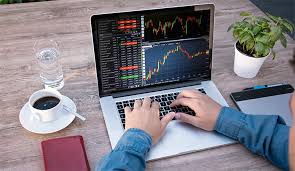
The Essential Guide to Choosing a Forex Trading Broker
In today’s fast-paced world of online trading, selecting the right Forex trading broker is critical to achieving success in the currency markets. With an overwhelming number of options available, the decision can be daunting. This guide aims to simplify that process and provide you with the knowledge needed to make an informed choice. While exploring broker options, you can always consider forex trading broker ex-zar.com for comprehensive trading services.
Understanding Forex Trading Brokers
Forex brokers serve as intermediaries who provide a trading platform for retail and institutional investors to buy and sell currencies. They connect you to the Forex market, enabling you to make trades and manage your investments effectively. Brokers may vary significantly in terms of services, trading platforms, regulations, fees, and support, which is why understanding the different aspects is essential.
Types of Forex Brokers
There are mainly three types of Forex brokers, each offering unique structures and trading environments:
- Market Makers: Market makers create their own market for currency pairs. They often quote both a buy and a sell price, profiting from the spread. They can offer a wide range of pairs and provide liquidity, but potential conflicts of interest may exist.
- ECN Brokers: Electronic Communication Network (ECN) brokers facilitate direct market access, linking traders to liquidity providers and other participants. This type of broker generally charges a commission and provides tight spreads.
- STP Brokers: Straight Through Processing (STP) brokers route orders directly to liquidity providers without human intervention. STP brokers typically offer fast execution speeds and can provide both fixed and variable spreads.
Factors to Consider When Choosing a Forex Broker
Selecting the right Forex broker cannot be overstated, and several key factors must be taken into account:
Regulation and Licensing
The first step in evaluating a broker is to check their regulatory status. Reputable brokers are regulated by recognized authorities such as:
- US: Commodity Futures Trading Commission (CFTC) and National Futures Association (NFA)
- UK: Financial Conduct Authority (FCA)
- Australia: Australian Securities and Investments Commission (ASIC)
- Cyprus: Cyprus Securities and Exchange Commission (CySEC)
Regulation protects traders by ensuring brokers adhere to specific standards and provides a means of recourse if issues arise.
Trading Platforms
The trading platform is the tool you will use to execute trades. Some popular platforms include MetaTrader 4, MetaTrader 5, and proprietary platforms offered by brokers. Consider the following aspects of a trading platform:
- User-friendliness
- Charting tools and technical analysis capabilities
- Availability of mobile trading options
- Execution speed and order types
Fees and Commissions
All brokers charge fees in one way or another, either through spreads, commissions, or other costs. It’s crucial to review the fee structure of potential brokers:
- Spread: The difference between the buy and sell price.
- Commission: A fee charged per trade, common among ECN brokers.
- Swap Fees: Overnight fees charged for holding positions past a trading day.
Compare the overall costs associated with trading on different platforms to determine which broker offers the best value.
Customer Support
Good customer support is essential for resolving issues and answering queries promptly. Look for brokers that offer:
- 24/7 customer support
- Multiple contact methods (live chat, phone, email)
- Comprehensive FAQ sections and educational materials
Bonus Features to Look For
In addition to essential features, consider browsing for brokers that provide added benefits which can enhance your trading experience:
Educational Resources
Providers that invest in educational resources such as webinars, tutorials, and market analysis can significantly benefit traders—especially beginners. These resources help you understand market dynamics and improve trading strategies.
Trading Tools and Indicators
Many brokers offer various trading tools and indicators, which can assist you in making informed decisions. Features such as economic calendars, trading signals, and portfolio management tools often provide an edge in trading activities.
Demo Accounts
Before committing real money, a demo account allows traders to practice trading without financial risk. Look for brokers that offer free demo accounts to test platforms and strategies.
Final Thoughts
Choosing the right Forex trading broker is a crucial step toward trading success. By considering factors such as regulation, trading platforms, fees, customer support, and bonus features, you can make an informed decision that best aligns with your trading goals. It’s advisable to take your time, conduct thorough research, and possibly test a few brokers with demo accounts before making your final choice. Each trader’s needs can differ, so what works for one may not work for another. Happy trading!
